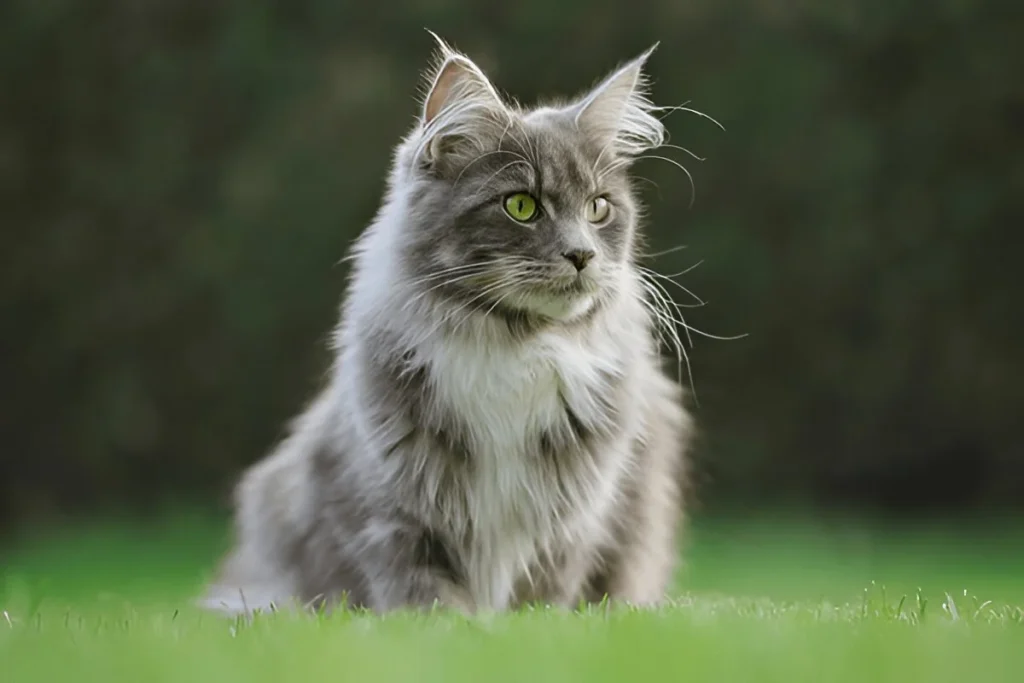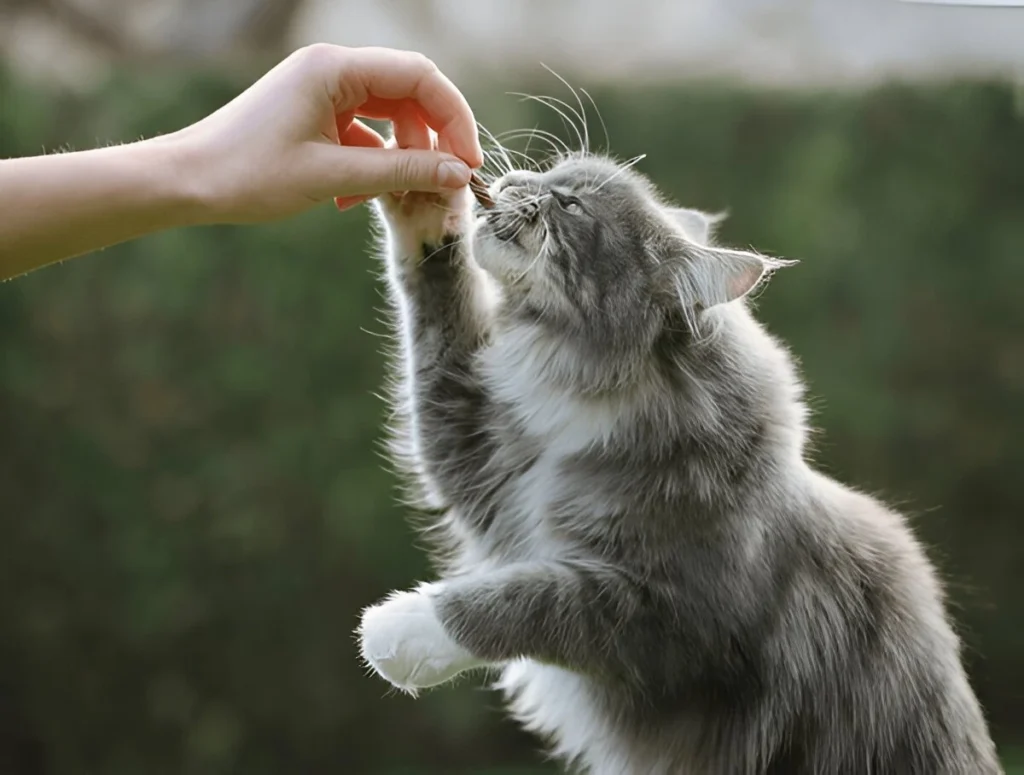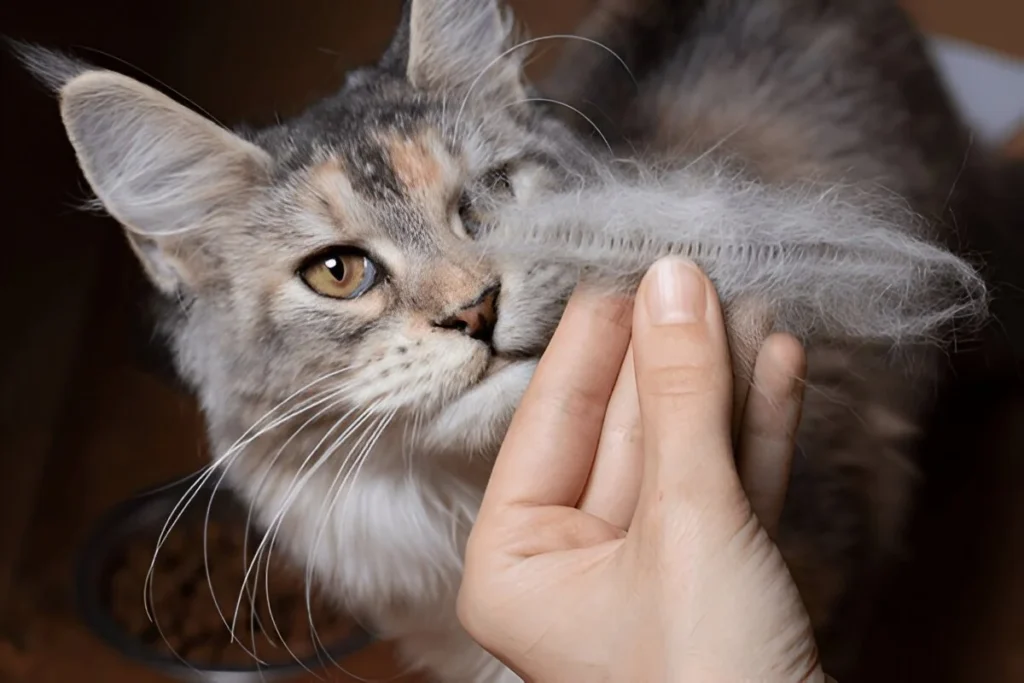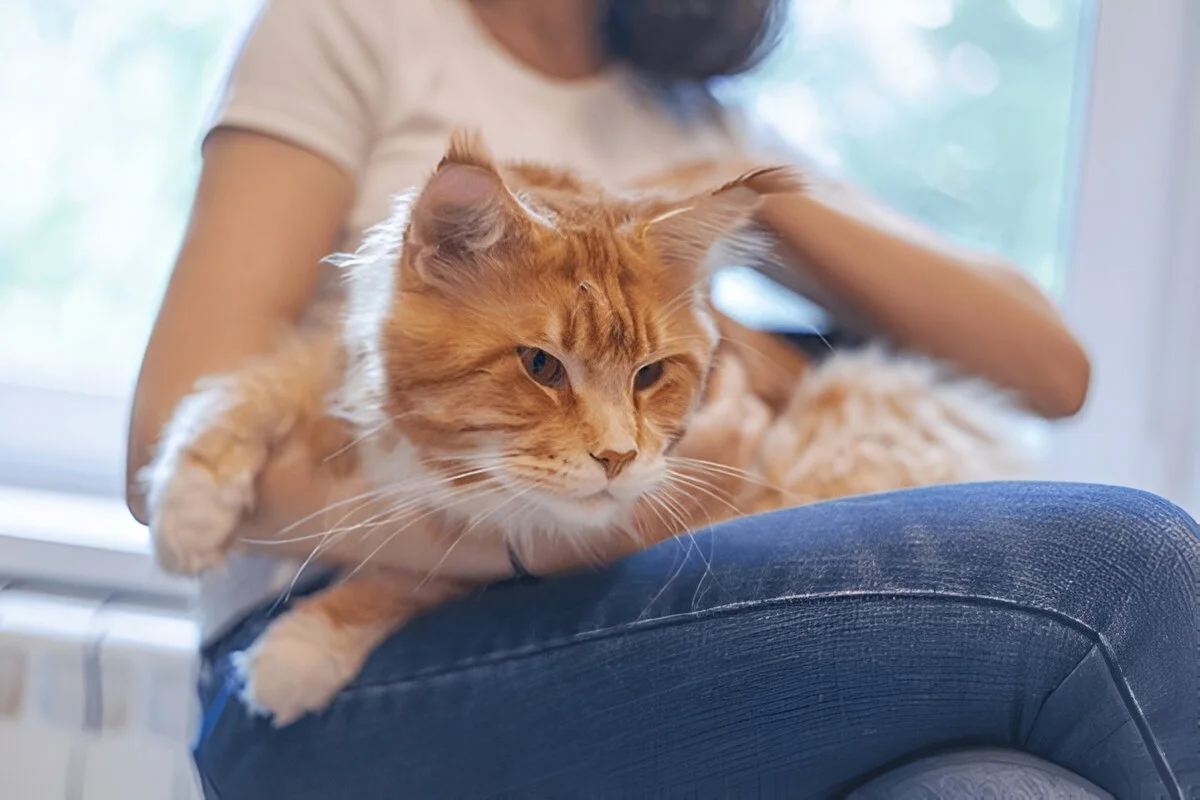As a Maine Coon owner, you will inevitably end up in a moment where you’re watching your majestic tufted-eared friend press their nose against a window with wide-eyed curiosity and you wonder, should I let them outside or is their world best kept within walls?
The indoor versus outdoor debate is not just a decision for Maine Coons owners; it is a battle between their wildness and our desire to keep them safe.
After weighing all the risks and rewards for my sweet giant, I understand this decision will not only affect your cat’s day-to-day adventures, but it will also dictate their health and happiness long term.
Allow me to discuss the science, the stories, and the nuanced downsides to our choice on where your Maine Coon belongs–indoor, outdoor, or a bit of both.
- 1. Maine Coon Cat Indoor vs. Outdoor Living
- 2. What Does Science Say About Indoor Maine Coon Living?
- 3. What Is the Negative Impact of Life Indoors Only?
- 4. What About Outdoor Life for Maine Coons?
- 5. Indoor vs. Outdoor Maine Coon: Is There a Middle Ground?
- My Experience: From Outdoor Believer to Indoor Advocate
- Indoor vs. Outdoor: What Should You Choose?
1. Maine Coon Cat Indoor vs. Outdoor Living
When I first brought my Maine Coon, Leo, into my home, I was struck by his intelligence, gentleness, and wild beauty. Like most new owners, I experienced the common dilemma: should I keep Leo solely inside or allow him outside as nature intended?
The answer is not straightforward—as owners of a unique breed, Maine Coons—we have to consider several factors.
Let’s look at what science tells us, what breeders and experts recommend, and what real-life experience has taught me.
2. What Does Science Say About Indoor Maine Coon Living?

Increase Lifespan and a Healthier Life
A multitude of studies indicate that indoor cats have longer life spans than outdoor cats. A recent survey of Maine Coon cat owners indicated that nearly 55% of Maine Coons lived over 15 years old while being kept indoors.
Ultimately, indoor cats are at a lower risk of trauma, contagious diseases, and environmental dangers. Indoor cats also face fewer toxins, aggressive animals, or vehicles, which are the cause of injury or death to many cats.
Indoor cats face less risk from external threats, such as animals and humans, that would endanger their safety than outdoor cats.
Disease and Parasite Prevention
Indoor cats have a vastly lower risk of exposure to fleas and ticks and infectious diseases that outdoor cats can acquire.
This is especially important for Maine Coon cats with its heavy coats, which can mask parasite infestations and make parasites harder to find and treat.
[Source]
Theft and Cats as a Target
Maine Coon cats have great value as being one of the most recognized cat breeds both in size and popularity. Because of their value and size, they become a target for theft.
Many breeders in the US and Europe are starting to attach a contract to pet ownership which will state that the purchased Maine Coon is an indoor cat to limit the chances of the pet being stolen or harmed.

RELATED POSTS:
8 Heartfelt Reasons Why Get a Maine Coon Should Be Your Next Pet Choice
5 Must-Try Raw Cat Food Recipes for a Happier, Maine Coon Kitten
9 Surprising Reasons Why My Cat Jumps on My Back
3. Negative Impact of Indoor Life
Boredom and Obesity
Maine Coons are very smart and active. Without stimulation, they can become bored, frustrated, or even depressed.
Science links being confined to indoors with an increased risk of obesity, especially with large, active breeds such as the Maine Coon.
Obesity can lead to diabetes, joint issues, and decreased quality of life.
Suppressed Natural Behaviors
Indoor cats do not have an opportunity to express their natural hunting and exploring instincts. For Maine Coons, who are from tough, outdoor cats, this is very difficult.
Owners have to work hard to provide enough interactive toys, climbing structures, and playtime each day to ensure their cat remains mentally and physically healthy.
4. Outdoor Life for Maine Coons
Natural Exercise and Mental Stimulation
Outdoor life for Maine Coons gives them the opportunity to climb, hunt, and explore, all of which keeps the body fit and the mind agile.
Furthermore, seasonal conditions affect their shedding cycles; outdoor Maine Coons experience large “coat blows” in the spring and fall, while indoor cats can shed steadily throughout the year since they live in artificially lit and stable temperature conditions.
Potential Dangers
On the other hand, the outdoor world can be very dangerous. Traffic, predators, parasites, toxins — these all pose a serious risk.
Most studies and expert opinions show that outdoor cats have a much greater risk of injury, disease, and death than indoor cats.
Even in rural areas, there are environmental risks, poison, and getting lost that everyone has to acknowledge.

ALSO READ:
How to Tell If You Have a Maine Coon Kitten?
What Flowers Are Toxic to Cats?
Top 10 Genius Ways to Keep Your Maine Coon Cat Active
5. Indoor vs. Outdoor Maine Coon: Is There a Middle Ground?
Supervised Outdoor Time
Many Maine Coon owners, myself included seem to find a middle ground by offering safe outdoor experiences.
Catios (cat patios) and leash walking allow Maine Coons to engage with fresh air and stimulation without the dangers of being free-roaming.
Breeders and the Cat Fanciers’ Association were supportive of this option as well, since they recommended that cats should live indoors with access to safe, enclosed outdoor spaces.
My Experience: From Outdoor Believer to Indoor Advocate
As a kid, I had always assumed that cats were destined for outdoor lifestyles. My family cats were outdoor cats and seemed happy and fulfilled. But after adopting Leo and learning about the risks involved with the breed, my thoughts on the outdoor lifestyle changed.
I couldn’t imagine losing him to traffic or theft. Now, I enrich Leo’s indoor experience with a variety of puzzle feeders, large towering cat trees, and daily interactive play sessions.
On beautiful days, we also explore the secure enclosure in the backyard, where he can sunbathe and enjoy watching the local birds without fear.
I have seen first-hand that a stimulated indoor Maine Coon can be just as happy and healthy as an outdoor Maine Coon with no of the risks involved!
Leo’s affectionate nature, silly antics, and overall health indicate to me this was the right decision, leisure time aside.
Indoor vs. Outdoor: What Should You Choose?
The choice of whether to live an indoor or outdoor life is a personal one that inevitably depends on your specific environment, your cat’s character, and how much time and effort you feel you will allocate to enrich your cat’s indoor lifestyle.
The science and expert opinion are heavily weighted toward indoor living for health and especially safety, and longevity, for this special breed.
However, if you’re creative, committed, repurposable and open-minded, you can easily give your Maine Coon the best of both worlds!
References:
- https://www.smorescience.com/how-long-do-indoor-outdoor-cats-live/
- https://pmc.ncbi.nlm.nih.gov/articles/PMC7070728/
- https://pmc.ncbi.nlm.nih.gov/articles/PMC10451177/
- https://pmc.ncbi.nlm.nih.gov/articles/PMC7909512/

